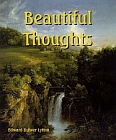
Book of Tephi (larger print comb-bound)

Description
translated by J.A. Goodchild
Originally Published in 1897
Ancient and Forgotten Manuscript of Tea Tephi. This manuscript evidences a new light on the theory of British Israelism. Perhaps the Hebrews came to Ireland hudreds, perhaps a thousand years before modern accounts states.
FOR IF Darda, the Egyptian, son of Zarah, was Dardanus, the Egyptian founder of "Troy", and if Chalcol was the Egyptian Cecrops or Niul and the contemporary founder of Athens and Thebes, and if Heman, the brother of Niul, was the likewise contemporary Egyptian it genon who inherited Phoenicia, and if Mahol, the son of Zerah and the father of these famous Egyptians, was Scytha or Fenesia Farsa, the Egyptian ancester of the Milesians whose records, full an J complete, enable us to blend the whole into one continuous recital down to the present day, surely we have means at hand in TROJAN, GRECIAN and MILESIAN sources, to continue out the record of the Sacred Chronicles, and lend them greater reverence as we come to- understand and prize them at their worth!
And it is just this claim that we now advance, for by rescuing this fragmentary reference to Zerah's line (not Zarah's), found in I Kings (IV. 30-31), from the igno- rance and misconception with which all former generations seem to have treated it, and by reading in it a clear and intentional reference to the famous heroes of secular history, to the founders of Phoenicia, Grecia, Troy, and the Milesians, and indirectly to Rome, the child of Troy, to Carthage and to the Brigantes of Hispania, we place in the hands of Our Race, and before their open eyes,the peer of the Rosetta Stone itself, - in that all men who are "wise" may read the conclusion in their own language between the hUes of Sacred History itself!
The Greeks, in imitation of other polite nations of antiquity, began to cultivate history, and committed these relations, such as they found them, to writing; but unable to trace the precise periods of these transactions, they gave them the best form they could. Irish history will, however, I think, to universal satisfaction, clear up these difficulties, and prove that even tradition itself in history is not to be despised.
- Charles A. L. Totten, M.A.
Larger print : 100+ pages Comb-bound















